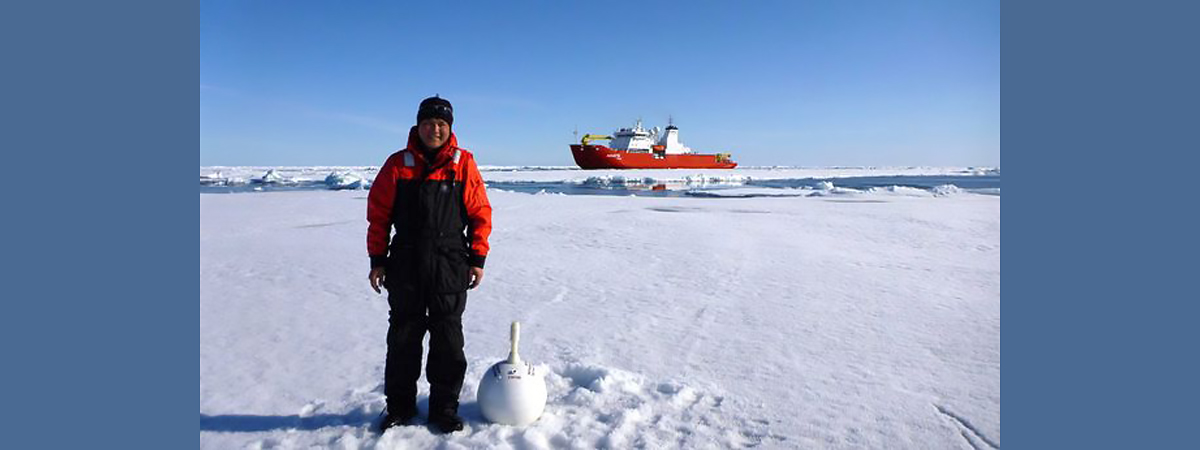The three-year project will result in a new sea ice fragmentation module delivered to climate and weather modelling groups including the Met Office, the National Oceanography Centre, the British Antarctic Survey, and the European Centre for Medium-Range Weather Forecasts.
ARCTIC sea ice is an important indicator of climate change and its rapid decline in past decades has been a wake-up call to scientists, policy-makers, and the general public.
Now, an innovative new project featuring Dr Byongjun (Phil) Hwang from the University of Huddersfield's School of Applied Sciences will determine the role of sea ice fragmentation in the accelerated retreat of the Arctic ice-cap by combining new and emerging observations, new theory and process modelling.
The research is being funded by the National Environment Research Council (NERC) as part of a responsive project award titled 'Fragmentation and Melt of Arctic Sea-Ice'.
Climate model accuracy
The latest assessment from the Intergovernmental Panel on Climate Change (IPCC) concluded that it was likely that the Arctic would become reliably ice-free by 2050 assuming greenhouse gas emissions continue to increase. However, the climate simulations used by the IPCC often fail to realistically capture large scale properties of the Arctic sea ice, such as the extent, variability and recent trends which can lead to the impairment of climate model accuracy.
"This is why it is imperative we improve simulations of Arctic sea ice so we can provide a better understanding of the recent observed changes and deliver credible projections of the future," said Dr Hwang.
"By building a fundamental understanding of sea ice fragmentation we will improve climate model predictions. This will help assess risks and opportunities as well as inform important policy decisions about adaptation and mitigation."
The three-year project, which is being led by Professor Danny Feltham at the University of Reading, will result in a new sea ice fragmentation module delivered to climate and weather modelling groups including the Met Office, the National Oceanography Centre, the British Antarctic Survey, and the European Centre for Medium-Range Weather Forecasts.
As a geophysicist and remote sensing expert, Korean-born Dr Hwang has developed a specialism in the dynamics and thermodynamics of snow and sea ice in polar regions. He has undertaken a large number of expeditions to the Arctic, including some tough mid-winter assignments.
In this video, Dr Hwang explains how the numerical equations used by the current climate models are based on measurements taken from the 'old Arctic' when the sea ice was thicker and slower-moving. However, sea ice in the 'new Arctic' is thinner, moves faster and during the Arctic summer, the ice becomes fragmented, breaking-up into smaller pieces. Dr Hwang says a critical new dataset is required for the world to receive an uptodate forecast on the future of our climate. View the full news story: hud.ac/f2o.
A seasoned Arctic researcher, he has already made 15 voyages to the region, observing, recording and analysing seasonal changes in the ice. The data he has gathered on Arctic sea-ice retreat has been an important contribution to the scientific debate about climate change.







